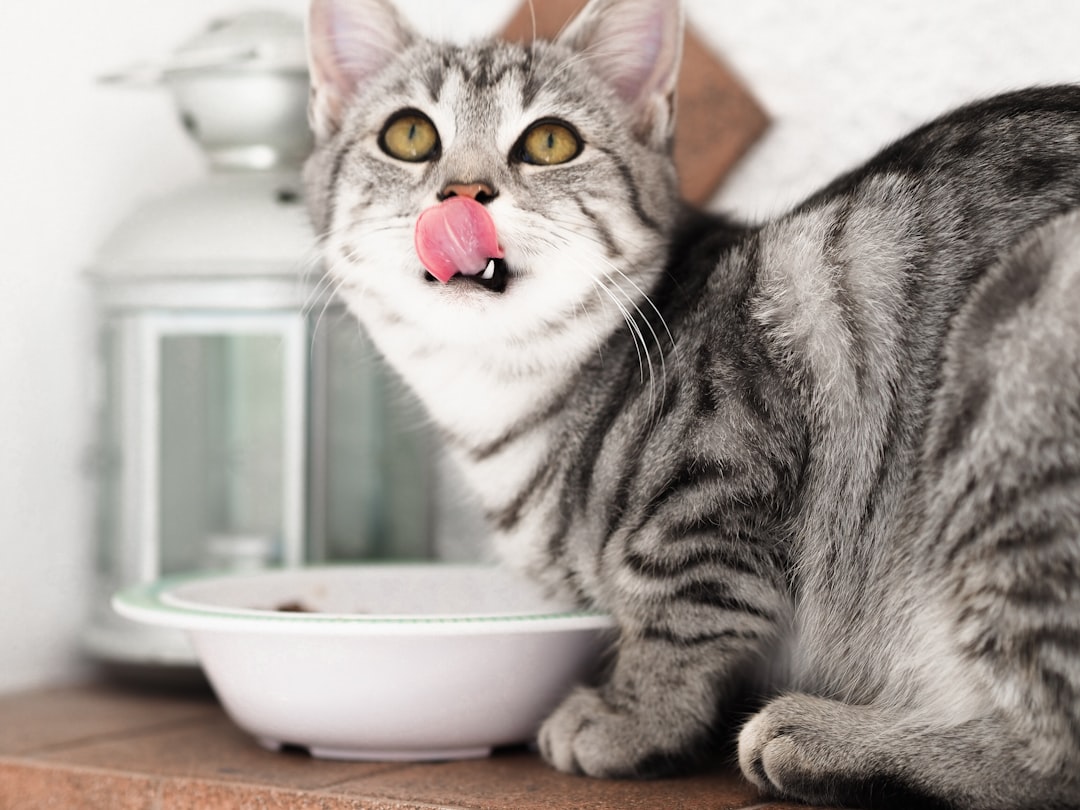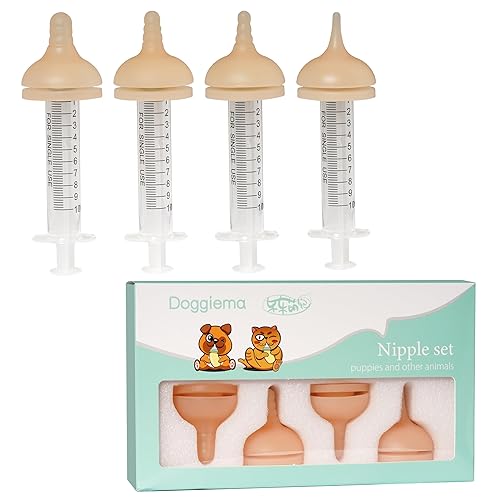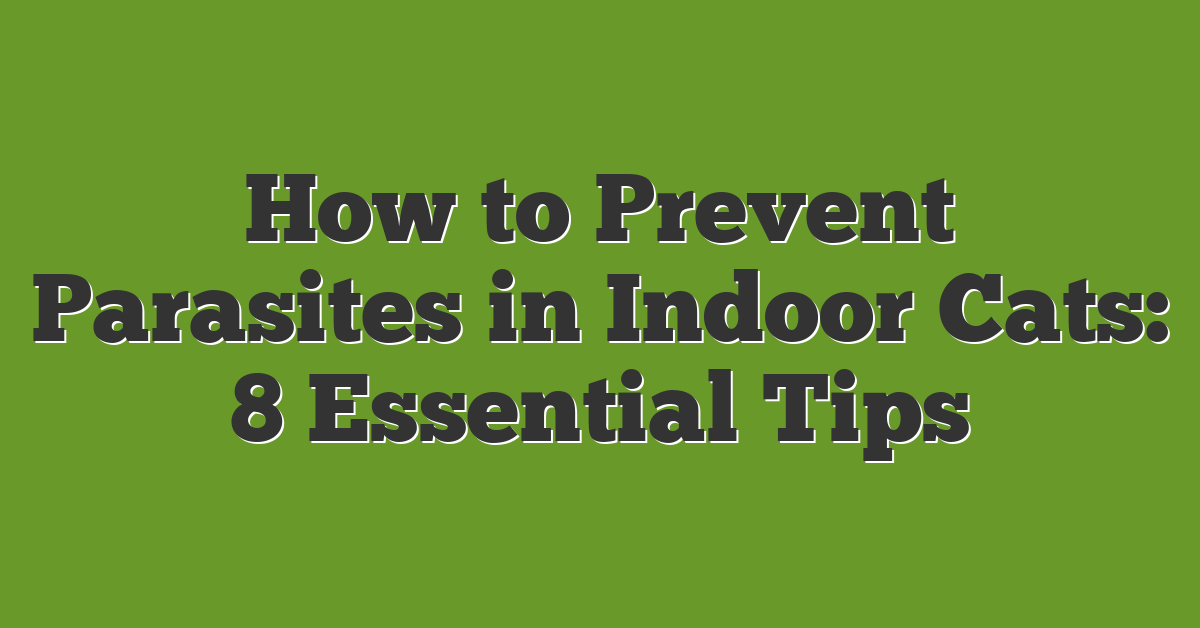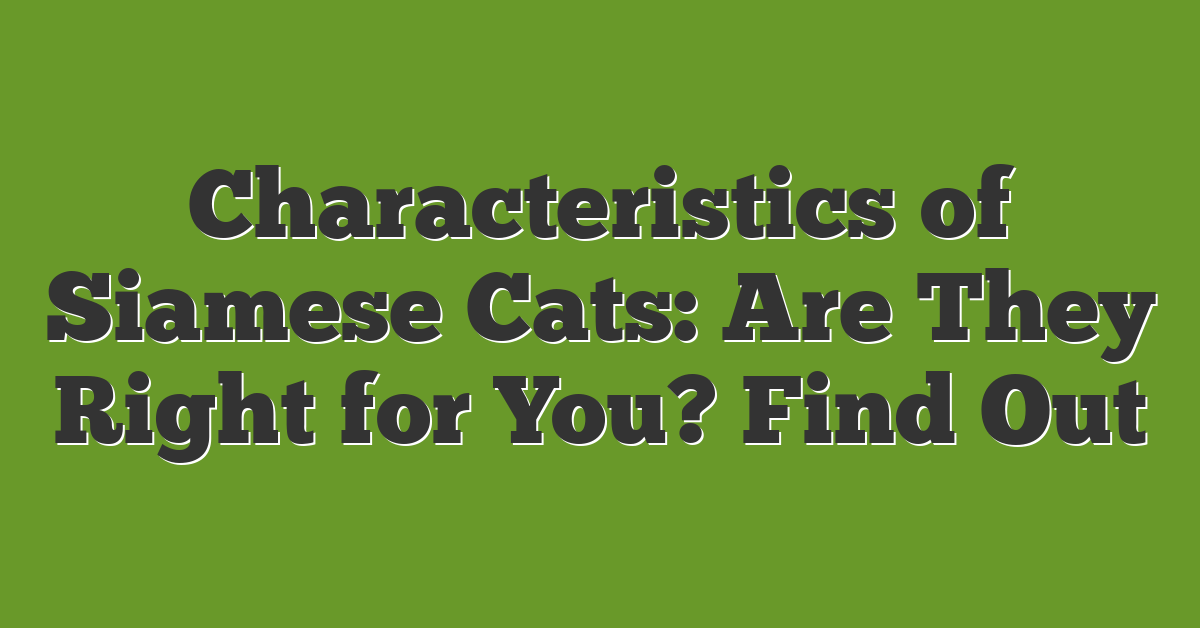As a responsible pet owner, you want to ensure that your feline friend is getting the best care possible. If your cat has been diagnosed with feline immunodeficiency virus (FIV), you may be wondering what the best food options are to help support your cat’s immune system. In this article, we’ll explore the importance of nutrition for FIV-positive cats, the different types of cat food available, and tips for maintaining a healthy diet and weight to help you make informed decisions for your furry friend. Keep reading to learn more!
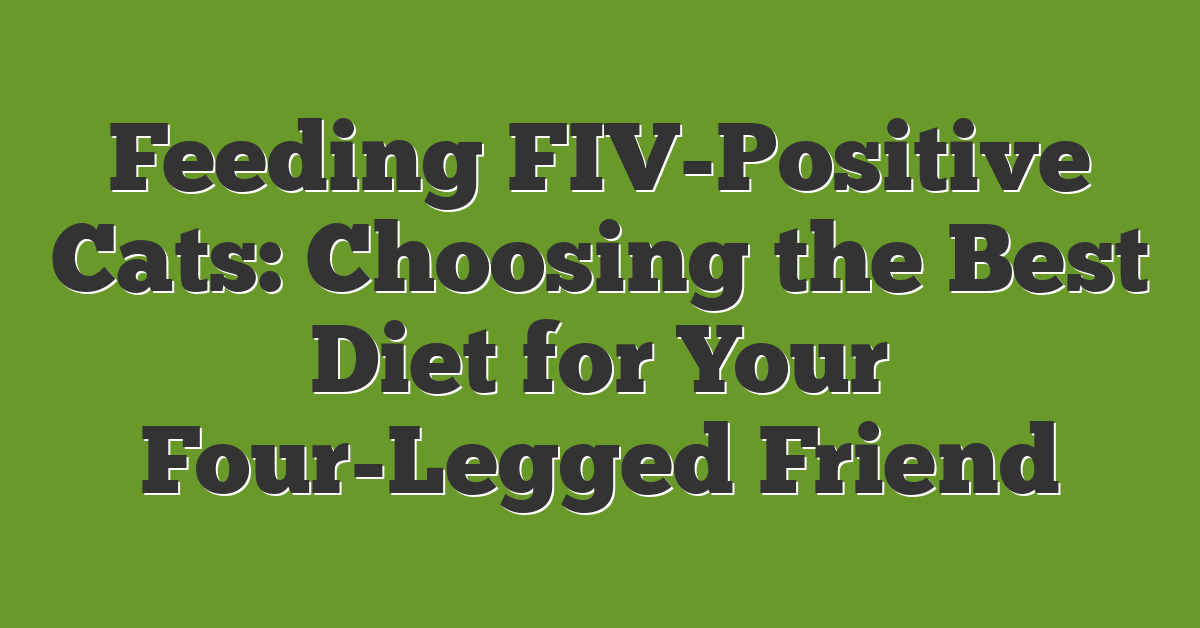
Understanding Feline Immunodeficiency Virus (FIV)
Understanding Feline Immunodeficiency Virus (FIV)
Feline Immunodeficiency Virus (FIV) is a viral infection that affects cats worldwide. Similar to HIV in humans, FIV attacks and damages the immune system of cats. This means that FIV-positive cats are more likely to develop infections and illnesses, making their nutrition and overall health especially important.
While FIV can be a scary diagnosis, it’s essential to understand that many cats can still live long and healthy lives with good care and proper nutrition.
To help your FIV-positive cat thrive, it’s vital to prioritize their nutrition and overall health to help boost their weakened immune system. In the next section, we’ll discuss the importance of nutrition for FIV-positive cats.
Here are some important facts to keep in mind when dealing with FIV:
- FIV is primarily transmitted through bite wounds, so cats that fight are at higher risk.
- FIV-positive cats can still live with FIV-negative cats, as long as they don’t fight.
- FIV-positive cats are at an increased risk for dental disease, so regular dental check-ups and cleanings are important.
- The symptoms of FIV can vary widely, from mild to severe, depending on the individual cat.
Next, we’ll discuss the importance of nutrition for FIV-positive cats.
Importance of Nutrition for FIV-Positive Cats
Feline Immunodeficiency Virus (FIV) is a virus that attacks the immune system of cats and can lead to serious health complications. For cats who have tested positive for FIV, proper nutrition is paramount to their overall health and well-being.
Like other cats, FIV-positive cats need a balanced and healthy diet that provides the necessary proteins, vitamins, and antioxidants to support their immune system. A high-quality and nutritious diet can help improve their ability to fight off infections and maintain their health.
When it comes to feeding FIV-positive cats, there are several types of cat food to choose from, including wet food, dry food, canned food, and homemade food. Wet food, in particular, can be beneficial for cats with FIV because it provides additional moisture which can help prevent dehydration, which is a common problem for cats with weakened immune systems.
Supplements and nutrients can also play a crucial role in supporting a cat’s immune system. Protein is an essential nutrient that can help the body build and maintain muscles and tissues. Omega-3 fatty acids can help reduce inflammation and enhance cognitive function. Vitamins like A, C, and E can help boost the immune system and protect the body against free radicals.
In addition to providing the right food and supplements, it’s essential to maintain a healthy weight for FIV-positive cats. Being overweight can put additional stress on their weakened immune system and lead to other health complications.
When choosing cat food and supplements for FIV-positive cats, it’s essential to consult with a veterinarian for dietary recommendations. Prescription diets and supplements can be an effective way to manage a cat’s health and provide them with the necessary nutrients and vitamins they need to thrive.
Overall, a healthy and high-quality diet is critical to maintaining the health of FIV-positive cats. By providing them with a nutritious and balanced diet, cat owners can help support their cat’s immune system and improve their quality of life.
Types of Cat Food for FIV-Positive Cats
When it comes to choosing the best food for FIV-positive cats, there are several options available to pet owners. Understanding the different types of cat food available and the benefits they can provide to your cat can help you make an informed decision about what to feed your four-legged friend.
- Wet Food:
Wet food is a popular choice for many cat owners and can be beneficial for FIV-positive cats. These foods typically have higher moisture content than dry food, which helps keep your cat hydrated. Plus, the soft texture of wet food is easier for cats with dental issues to eat. Look for wet cat food that contains natural ingredients, high-quality protein sources, and essential nutrients like vitamins, minerals, and antioxidants.
- Dry Food:
Dry cat food can be a convenient choice for pet owners, but it’s important to choose a high-quality brand. Look for dry food that is low in carbohydrates and high in protein, with natural ingredients like lean meats and vegetables. Additionally, choose a brand that includes omega-3 fatty acids for immune-boosting benefits and healthy skin and coat. Some veterinarians recommend avoiding dry food for FIV-positive cats due to the risk of dehydration and weight gain.
- Homemade Food:
If you prefer to feed your cat homemade food, it’s important to consult with your veterinarian to ensure your cat is getting the proper nutrition. Homemade food can be a healthy option, but it’s essential to include lean protein sources, essential vitamins and minerals, and natural ingredients like fruits and vegetables. You may also consider adding supplements to your cat’s homemade diet to ensure they are getting the proper balance of nutrients.
- Prescription Diets:
If your cat has specific dietary requirements due to FIV or another underlying health condition, your vet may recommend prescription diets. These diets are specially formulated to meet the needs of cats with certain health conditions and are formulated with high-quality, natural ingredients that can provide immune-boosting benefits and support digestive health. Prescription diets are available in both wet and dry food varieties.
- Limited Ingredient and Grain-Free Diets:
Some FIV-positive cats may have food sensitivities or allergies, making it important to choose a limited ingredient or grain-free diet. These diets typically consist of a single protein source and minimal ingredients, making them easy to digest and gentle on the digestive system. Additionally, grain-free diets may help reduce inflammation and improve digestive health.
In summary, there are several types of cat food available for FIV-positive cats, including wet food, dry food, homemade food, prescription diets, and limited ingredient/grain-free diets. It’s important to choose a high-quality brand that contains natural ingredients, essential nutrients, and omega-3 fatty acids to support immune health, weight management, and digestive health. Consulting with your veterinarian can help you make an informed decision about what to feed your feline friend.
Supplements and Nutrients for FIV-Positive Cats
Supplements and nutrients play an essential role in maintaining the health of FIV-positive cats. Since feline immunodeficiency virus can weaken their immune system, it is crucial to support their bodies with a proper diet. Here are some supplements and nutrients that can help boost the immune system and overall health of your feline friend.
Protein:
Protein is an essential nutrient for all cats, but it’s especially important for FIV-positive cats. A diet that is high in protein can help maintain muscle mass and repair tissues that may have been damaged by the virus. It’s important to ensure that the protein in their diet comes from high-quality sources such as chicken, fish, or beef.
Vitamins and Antioxidants:
Antioxidants and vitamins, such as vitamin E and vitamin C, can help support the immune system and protect against damage from free radicals. Look for cat foods that contain these essential nutrients. Alternatively, some pet owners also choose to add supplements to their cat’s diet, but before doing this, consult with your veterinarian for advice.
Omega-3 Fatty Acids:
Omega-3 fatty acids can help maintain healthy skin and coat as well as reduce inflammation and improve heart health. Some cat foods contain omega-3 fatty acids, or pet owners can supplement their cat’s diet with fish oil or other omega-3 supplements.
Weight Management:
Maintaining a healthy weight is important for all cats, but it’s especially crucial for FIV-positive cats, as they may be more susceptible to infections and other health issues. Speak to your veterinarian to identify the ideal weight for your cat and the best diet plan to achieve it.
Digestive Health:
FIV-positive cats are also at risk of digestive issues, so it’s essential to ensure they’re getting enough fiber, probiotics, and other nutrients that support digestive health. Some cat foods are formulated specifically for digestive health, or you can add supplements, such as canned pumpkin or probiotics, to their diet.
When it comes to supplements and nutrients for FIV-positive cats, always discuss with your veterinarian first to ensure that the supplements you are giving your feline friend are safe and effective for them. With the right nutrition and diet plan, you can help boost your FIV-positive cat’s immune system, maintain their overall health, and improve their quality of life.
Tips for Maintaining a Healthy Diet and Weight
Maintaining a healthy diet is important for all cats, but it is especially important for cats with Feline Immunodeficiency Virus (FIV), who have weakened immune systems. Feeding your FIV-positive cat a healthy and nutritious diet can help to boost their immune system and improve their overall health. Here are some tips for maintaining a healthy diet and weight for your FIV-positive cat:
Choose a high-quality cat food: A high-quality cat food is one that is complete and balanced and provides all the necessary nutrients that your cat needs. Look for a cat food that is specifically formulated for FIV-positive cats or one that is designed for immune system support. It should contain high levels of protein, vitamins, antioxidants, and natural ingredients. You can also choose a cat food that is fortified with omega-3 fatty acids to help boost your cat’s immune system. Some cats may benefit from a low-carbohydrate, high-protein diet or a grain-free, carnivorous diet.
Consider wet food: Wet food is a great option for FIV-positive cats, as it can help to boost hydration and support kidney and digestive health. It can also be easier for cats with dental issues to eat and can be more palatable for picky eaters.
Monitor portion sizes: Obesity can put extra stress on your cat’s immune system, so it’s important to monitor the amount of food you are feeding your cat and ensure they are not overeating. Your veterinarian can help you determine an appropriate portion size based on your cat’s age, weight, and activity level.
Offer a variety of foods: Offering your cat a variety of foods can help to prevent boredom and ensure they are getting all the necessary nutrients. You can offer your cat a combination of wet and dry food, as well as occasional treats.
Consider supplements: FIV-positive cats may benefit from supplements that support immune system function, such as vitamin E, vitamin C, and beta-carotene. However, it’s important to consult with your veterinarian before adding any supplements to your cat’s diet.
Seek veterinary advice: It’s important to consult with your veterinarian before making any changes to your cat’s diet. They can offer valuable advice on the best diet and supplements for your FIV-positive cat, as well as recommend prescription diets if necessary.
By following these tips, you can help to maintain a healthy diet and weight for your FIV-positive cat, which can help to improve their overall health and wellbeing. Remember to always consult with your veterinarian before making any changes to your cat’s diet or adding supplements.
Consulting Your Veterinarian for Dietary Recommendations
When it comes to feeding an FIV-positive cat, consulting with a veterinarian is highly recommended to ensure that your furry friend is receiving the most appropriate diet for their specific needs. A veterinarian can assess the degree of FIV progression and symptoms and give you detailed information about the essential nutrients needed for an FIV-positive cat’s diet.
Since FIV attacks the immune system, FIV-positive cats need a healthy diet to help boost their immune systems and combat infections. A balanced and complete diet that is rich in protein, vitamins, and antioxidants is recommended for these cats. Omega-3 fatty acids and natural ingredients can help improve skin and coat health, reduce inflammation, and promote brain function.
There are different types of cat food options you can choose from for your FIV-positive cat, and the decision will be based on what works best for your cat’s specific needs. Wet food, dry food, and even canned food are all suitable for cats with FIV. Many brands of cat food now offer specific diets that cater to FIV-positive cats, and you can consult with your veterinarian to choose the best one for your pet.
In addition to commercial cat food, there are many other supplements and nutrients that can benefit FIV-positive cats, including probiotics for digestive health, antioxidants, and low-carbohydrate, high-protein foods. You can also consider adding fresh fruits and vegetables, such as carrots or spinach, to your cat’s diet, as long as they are safe for cats to eat.
FIV-positive cats may also have special nutritional requirements depending on their age, weight, and overall health. For instance, overweight and senior cats may require a diet with fewer calories to help maintain a healthy weight. Kittens, on the other hand, may need more protein and certain nutrients to help with growth and development.
In conclusion, consulting with a veterinarian is essential in determining the best diet for your FIV-positive cat. They can recommend prescription diets, limited ingredient diets, or grain-free and carnivorous diets depending on your cat’s needs. By taking a holistic approach to your cat’s nutrition and choosing brands that use high-quality ingredients, you can help support your FIV-positive cat’s immune system and overall health.

